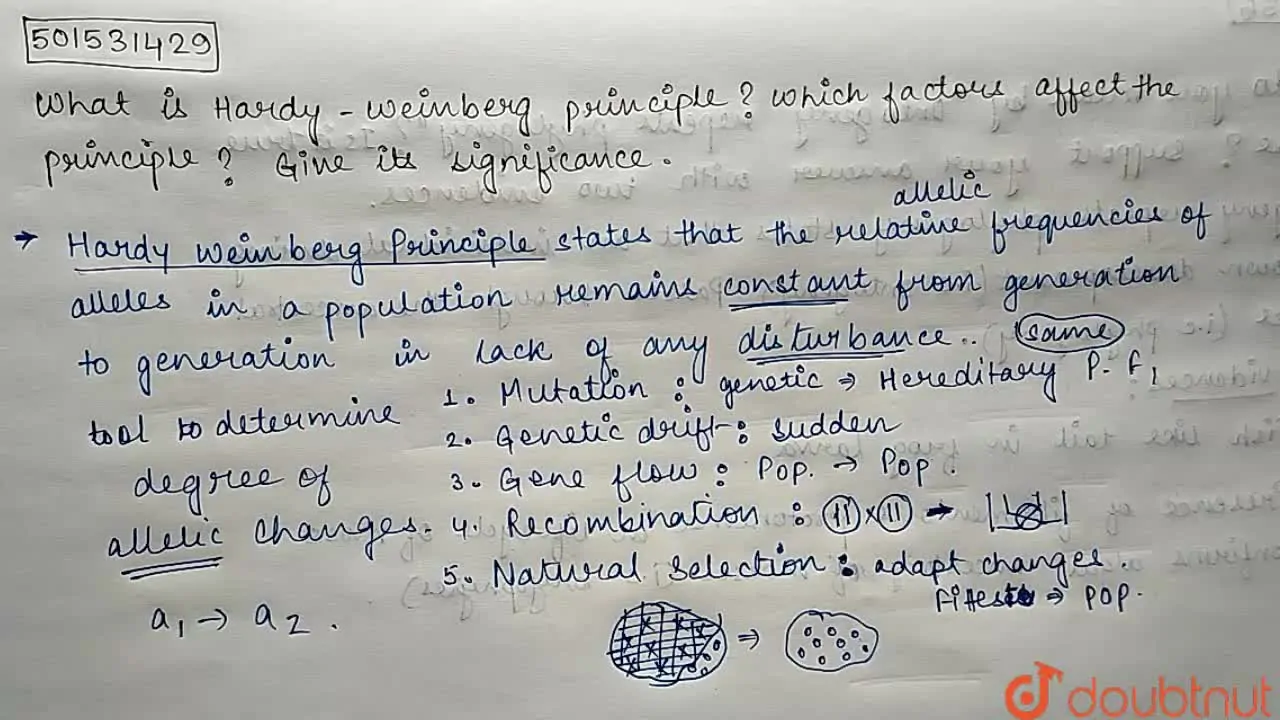What is Hardy-Weinberg principle? Which factors affect the principle? Give its significance.
Video Solution
Text Solution
Hardy-Weinberg principle states that the relative frequencies of alleles in Mendelian population remains constant from generation to generation of in populatoin of sexully reproducing organisms which the propulation is large, closed and shows random mating but shows no mutation.
Factors affecting Hardy. Weinberg principle are mutations, recombination of genes, genes flow. genetic drift and natural selection.
Significance: It acts as a tool to determine the degree of evolutionary change by comparing the allele frequencies at the starting time and at some future time.
|
Updated on:21/07/2023
Related Playlists
- BOOK - MODERN PUBLICATIONCHAPTER - EVOLUTIONEXERCISE - CHAPTER PRACTICE TEST (SECTION-D)(CASE-BASED SHORT ANWER )(THREE MARK EACH)2videos
EVOLUTION
- BOOK - MODERN PUBLICATIONCHAPTER - EVOLUTIONEXERCISE - CHAPTER PRACTICE TEST (SECTION-B)(SHORT ANSWER TYPE - I QUSTIONS )(TWO MARK EACH)5videos
EVOLUTION
- BOOK - MODERN PUBLICATIONCHAPTER - ECOSYSTEM EXERCISE - Chapter Practice Test (Section - D) (Case - Based Short Answer Type Questions)5videos
ECOSYSTEM
- BOOK - MODERN PUBLICATIONCHAPTER - HUMAN HEALTH AND DISEASESEXERCISE - Chapter Practice Test2videos
HUMAN HEALTH AND DISEASES
Similar Questions
Describe the Hardy-Weinberg principle
View SolutionWhat is Hardy-Weinberg principle ? List the factors which affect it
View SolutionHardy-Weinberg principle explains :
View SolutionHardy-Weinberg principle is applicable to
View SolutionThe Hardly-Weinberg principle cannot operate if
View SolutionHardy-weinberg Principle says that.
View SolutionDescribe the Hardy-Weinberg principle
View SolutionThe Hardly-Weinberg principle cannot operate if
View SolutionHardy - Weinberg principle cannot all members
View SolutionThe hardy-weinberg principle cannot operate if
View Solution


